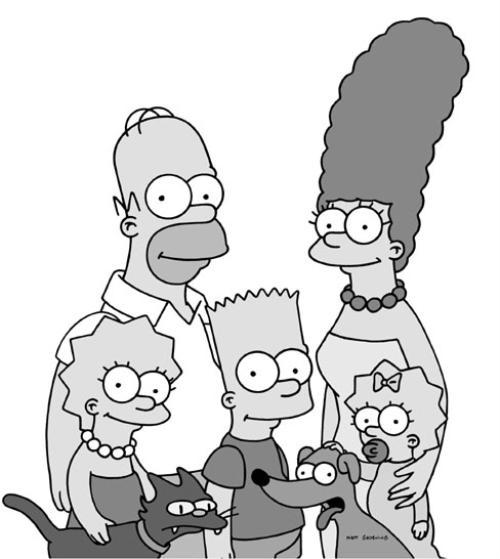From crooning for fellow Square frolickers to tickling the funnybone of 14 million Americans every Sunday night, George A. Meyer ’78 has always known how to get a rise out of those around him.
Today an executive producer of “The Simpsons,” one of network television’s longest-running and highest-rated shows, Meyer honed his skills as an entertainer during his years at Harvard. Back then, Meyer was often just one of a group of friends sitting outside the Harvard Lampoon, a semi-secret Sorrento Square social organization that used to occasionally publish a so-called humor magazine. From the steps of the Lampoon’s Bow Street castle, he would sing songs into the night.
It was not uncommon for the police to break up such impromptu gatherings after noise complaints from neighbors, fellow ’poonsters say. From time to time, though, the music would continue—perhaps for hours—without any interruption.
Nights like these were far too placid for Meyer’s tastes, according to longtime friend George F. “Chip” Johannessen ’77-’78.
“If no one had called the police, George would go inside and call the police himself just to start the commotion,” Johannessen says. “He has a strong need for things to happen.”
Meyer has made a career out of making mischief—whether calling the cops on himself and his boisterous friends or personifying the American family as a group of dysfunctional, spiky, yellow cartoons.
The Man Behind Springfield
In the 14 years since its debut, “The Simpsons” has garnered accolades and praise on a titanic level.
“To describe it as the greatest TV show in history would (and still does) minimize its importance by limiting its cultural impact to the small screen,” an article in the online magazine Slate contended this year.
But viewers thinking of the show may find that Meyer’s name does not come immediately to mind.
“It’s hard to convince anybody but the experts what George does,” says Jonathan M. Vitti ’81, another writer and producer of the show.
And yet when millions laugh around the world, they are usually laughing at Meyer’s jokes.
“A crazily high percent of viewers’ favorite jokes can be traced to George,” says Vitti. “He has the ability to put four jokes in a script, and they’re the four that viewers tell you about the next day.”
Despite this comedic Midas touch, however, Meyer’s role is elusive.
A 2000 profile written for the New Yorker by David L. Owen ’78, who knew Meyer during their years at Harvard, describes Meyer’s labors in that place which “Simpsons” writers know as “the room”—the Fox offices where rough drafts of episodes are painstakingly revised into hilarity.
Read more in News
Pataki: 'Yale is Going to Crush Harvard'














